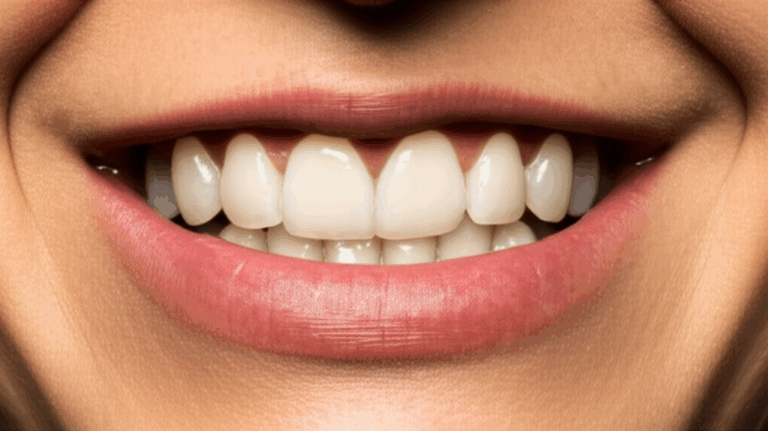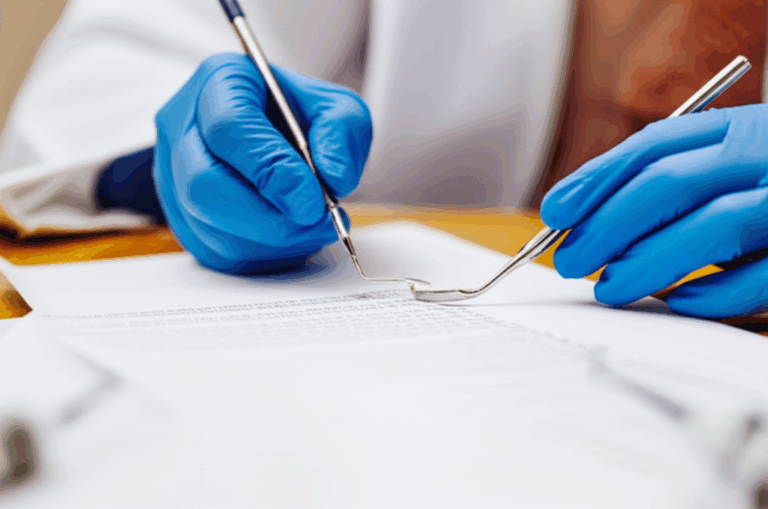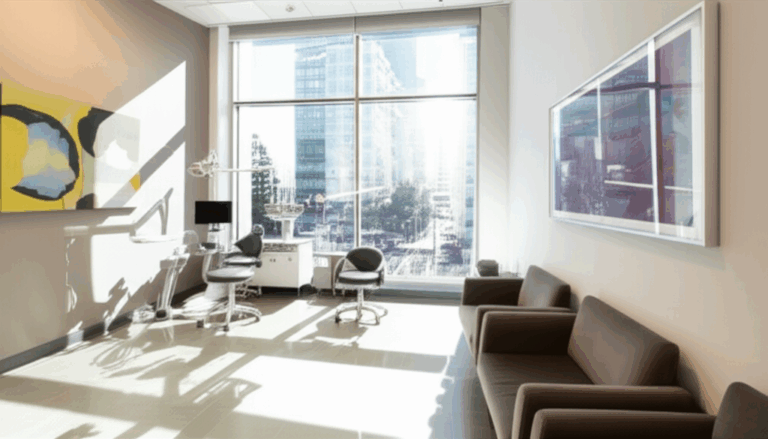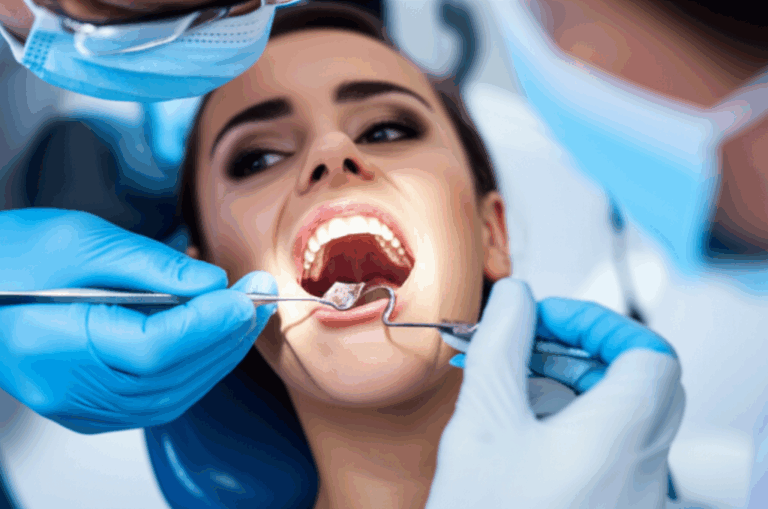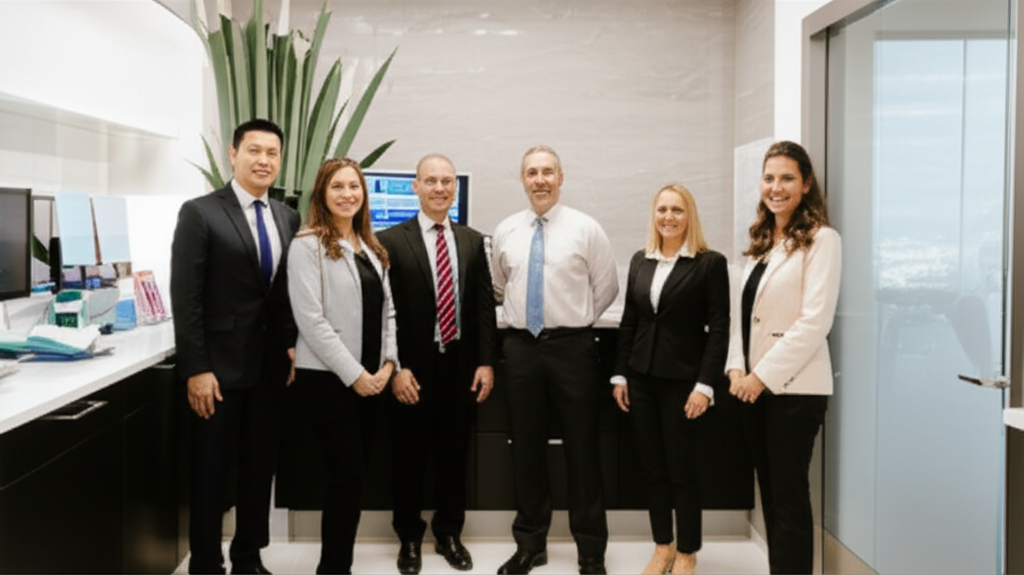
How Much Do Dentists Make in San Francisco? A Friendly, No‑Fluff Guide to Real Earnings in the Bay Area
You’re asking, “How much do dentists make in San Francisco?” Good question. San Francisco pays well for skilled jobs. But it’s also really expensive to live and work here. If you want a straight answer about what dentists actually make in San Francisco—and what that means for your paycheck—you’re in the right spot.
Here’s the quick answer: Most general dentists in San Francisco make a strong six‑figure income. Dental specialists make even more. But the price of housing, taxes, and the cost to run a practice in the Bay Area can make even a big paycheck seem smaller. This guide shows you the real numbers, in plain words, so you can make smart plans.
Table of Contents
Average Dentist Salary in San Francisco: The Overview
Let’s start with the main numbers. These salary ranges come from common market data you’ll see on websites like Glassdoor, Indeed, Salary.com, ZipRecruiter, the Bureau of Labor Statistics (BLS), plus what real local practices report.
- Average yearly pay for a general dentist in SF: about $190,000 to $260,000
- Entry‑level general dentist: $130,000 to $190,000
- Mid‑career general dentist: $190,000 to $280,000
- Experienced general dentist (10+ years) as an associate: $250,000 to $350,000
- Practice owner (after costs): $300,000 to $600,000 or more
How this compares to the rest of the country and state:
- San Francisco dentist pay usually runs 20% to 40% higher than the national average.
- California dentist salaries are often higher everywhere compared to other states.
- In California, San Francisco and the Bay Area are at the top because of patient mix and the local economy.
Bottom line:
“Average” doesn’t tell the whole story. In SF, what you earn changes a lot with experience, your specialty, if you own or work for a practice, and where you work in the city. Two dentists can both “make $300,000.” One might feel rich. The other might feel squeezed after taxes, rent, and loan payments.
Factors Influencing Dentist Salaries in San Francisco
A dentist’s real pay number is like a recipe. The mix—experience, specialty, type of practice, location, skills, and continuing education—decides how much you take home.
Experience Level
- New dentists (0–3 years): $130,000–$190,000
- You’re just getting started, learning faster, and paying student loans. Usually base pay with a bonus.
- Mid‑career (4–9 years): $190,000–$280,000
- More skill means you work quicker and see more patients. Bonuses get better.
- Experienced/ senior (10+ years): $250,000–$350,000
- You can keep a schedule full and ask for better pay, or get part of the practice if you want.
Dental Specialty
Specialists make more than general dentists because they do harder procedures. We’ll show those ranges below, for things like orthodontics, oral surgery, endodontics, and more.
Practice Type and Ownership
- Associate dentist
- Usually base pay plus bonus. Extras can include ongoing education, health insurance, malpractice insurance, and a 401(k).
- Pros: Less risk. Fewer things to worry about. Focus on treating patients.
- Cons: You make less than an owner. Less say in how things work.
- Practice owner
- Can make $300,000–$600,000+ after costs if business is good.
- Pros: Full control. You build up value in your business.
- Cons: Big risk. Big costs for rent, staff, supplies, and loans. What you take home depends on how well you run things.
- Corporate dentistry (DSOs)
- Steady base pay, clear bonus rules, good benefits. But you won’t get to decide as much.
- Public health (clinics)
- Pay less. Regular hours. Good for some student loan repayment programs.
- Academic dentistry
- Pay changes. You might teach, do research, and see patients. The reward here is more about learning and mentoring.
Location in San Francisco and Patient Volume
- Neighborhoods matter
- Areas like Pacific Heights and the Financial District can charge more and have patients more likely to accept care. The Mission District and other spots see lots of patients but have a mix of insurance.
- Patient mix
- Private insurance or patients who pay themselves raise your take‑home pay. If you see mostly Denti-Cal patients, you help more people but get paid less for each visit.
Skills, Technology, and Learning
- Advanced procedures make more
- Implants, clear aligners, root canals, extractions, cosmetic work—more skill, more money.
- Tech makes things smoother
- CAD/CAM, digital x‑rays, and in-office scanners help you work faster and make it easier for patients to see what’s happening.
- Learning matters
- Getting good at new things—like implants or root canals—brings in more income.
Guide tip:
How you get paid matters. Some contracts pay for what you do; others for what the office actually collects. Read your agreement and know what’s fair. Negotiate your minimum pay and bonuses.
Dentist Salary Breakdown by Specialty in San Francisco
Here’s what specialists in San Francisco or nearby cities tend to make. Real numbers depend on things like how many people refer to you and if you own your own place.
- General dentist: $190,000–$260,000
- Mostly checkups and fillings. Add things like implants or root canals to grow income.
- Orthodontist: $280,000–$500,000+
- Braces, clear aligners. Many patients pay cash.
- Oral and maxillofacial surgeon: $380,000–$700,000+
- Big surgeries, hospital work. Top earning group.
- Endodontist: $260,000–$450,000
- Root canals. Fast once you’re skilled. Needs good referrals.
- Periodontist: $240,000–$400,000
- Gum surgery and implants. Steady demand.
- Pediatric dentist: $220,000–$380,000
- Treats kids. Efficient scheduling can make a big difference.
- Prosthodontist: $250,000–$420,000
- Big cases like dentures, implants, cosmetic work.
Why specialists make more:
- More training means you can do harder cases.
- You get lots of referrals for expensive treatments.
- You often need special tools and equipment, but can work quickly.
The San Francisco Cost of Living Reality Check for Dentists
Big pay. Big costs. San Francisco’s cost of living is about double—sometimes more—than the U.S. average. Housing can be 3 to 4 times more than in other cities. Here’s what that means for dentists.
Housing Costs
- Renting: $3,000–$4,500 a month for a one‑bedroom in central areas is normal.
- Buying: It takes a big down payment and huge loans. Many dentists wait or look outside the city (East Bay, Peninsula) for more space and easier prices.
Taxes
- California taxes are high.
- San Francisco has extra fees for business, and dental costs hit your bottom line. Get a good CPA who knows healthcare.
Everyday Costs
- Groceries, transport, child care, and parking all cost more here.
- You’ll pay for education, licenses, and insurance.
- Commuting from the Bay Area suburbs can save on rent but eats more time.
Net Take‑Home
- Earning $300,000 in SF is not like earning $300,000 somewhere cheaper. Rent, tax, and office costs eat up a lot. Budget smart to save money.
Think of your pay as a bigger pie. But housing and taxes take bigger slices, too. You still eat well—but you have to plan better.
Job Market Outlook and Demand for Dentists in SF
California is one of the highest‑paying states for dentists. San Francisco adds a lot of tech workers, good insurance, and lots of different needs.
- Demand
- People move in and out a lot, so there’s always need for dentists.
- Cosmetic and implant trends are big in the city.
- Competition
- Lots of dentists want to work here, so service and technology matter more.
- Growth
- Dentists are still in demand. The Bay Area is steady, but what you make depends on your skills, how well you talk with patients, and where you work.
Guide tip:
Keep an eye out for new trends, dental organizations coming in, and changes to insurance rates. Groups like the ADA and CDA share updates.
Maximizing Your Earning Potential as a Dentist in San Francisco
Here’s how you can earn more as a dentist in SF.
Specialization and More Services
- Think about extra training (like a residency) for things like orthodontics, oral surgery, endodontics, or pediatric dentistry. Specialists make more.
- General dentists can still add to their pay with more skills—implants, clear aligners, root canals, extractions, or fast crowns.
Practice Ownership
- Owning your place means more in the long run—but also more risk and higher bills.
- You’ll need to pay for equipment, staff, rent, marketing, and tech.
- Run things efficiently. Watch costs closely.
Location and Patient Types
- Some neighborhoods support higher prices (Financial District, Pacific Heights).
- Family‑heavy areas and suburbs might have more regular patients and kids.
- The broader Bay Area can give you a bigger patient pool—sometimes with lower costs.
Advanced Skills and Tech
- Patients like new tech. Digital x‑rays, scanners, CAD/CAM all make things faster and smoother.
- Lab partnerships help too. Digital impressions cut down on mistakes and remakes. If you work with crowns and bridges, quality crown and bridge lab work keeps redo rates down.
Networking and Reputation
- Make friends with local dentists and specialists. The easier it is to work together, the more referrals you get.
- Reviews matter. Give good service; explain prices and options. Check in after big treatments.
- Connect with local alumni and dental groups to keep learning and get known.
Financial Planning in a High‑Cost Area
- Work with a financial advisor who knows health care. Plan for taxes, set up retirements, and get ready for quarterly bills.
- Use smart plans to pay off student loans. Some jobs help you qualify for loan forgiveness.
- Track key practice numbers: how much you produce each hour, how many patients come back, and how much your office actually keeps after bills.
Case Examples From the Bay Area
Here are two real-life examples (names and some details changed for privacy):
- Dr. Emily Chen, DDS—General Dentist
- Finished dental school at UCSF in 2020.
- First 3 years: Associate in the Sunset District. Started at $160,000, went up to $220,000 by year 3 as she got faster and learned more skills.
- Cost of living: Paid $3,500 a month for a one-bedroom. Liked city life, but saved less than expected. Took more classes in implants to boost income.
- Dr. David Lee, DMD—Orthodontist/Practice Owner
- Fifteen years in Pacific Heights.
- Income: Makes over $450,000 after costs.
- Focus: Invested in systems, staff, and a good patient experience early on. Costs stay high, but ownership built real security.
Entities and Resources That Shape the SF Dental Landscape
When you’re job hunting or looking at pay in San Francisco, these groups matter:
- American Dental Association (ADA), California Dental Association (CDA): Policies, rules, and ongoing education
- UCSF School of Dentistry: Training, internships
- BLS, Glassdoor, Indeed, Salary.com, and ZipRecruiter: Salary snapshots
- Practice types: solo, group, corporate, private, community clinic, academic
- Denti-Cal: State dental coverage
- Tech: CAD/CAM, digital x‑rays, 3D printing, scanners
- Dental team: hygienists, assistants, lab techs, managers
- Location: San Francisco, the Bay Area, Silicon Valley, Financial District, Pacific Heights, Mission District
What You Can Do Today: A Practical Playbook
Here’s a basic checklist for anyone at any stage:
- Want quick cash now, or build up something long-term by owning later?
- Prefer the fast pace of a big group or want to do your own thing?
- Look up recent pay offers online. Adjust for what you actually do.
- How do they pay you? Do you get a daily minimum? What extras come with the job?
- Some neighborhoods support higher pay; others don’t.
- Rent, staff, lab, supplies, marketing, debt—it all adds up.
- Take classes in implants, root canals, surgeries, clear aligners.
- Digital dental lab workflows and good fits cut down on re-dos and chair time.
- Work with a CPA and financial advisor. Budget for taxes, loans, and an emergency fund.
When Big Numbers Meet Real Life—Costs and Contracts You Should Understand
You can control a lot—but costs in SF aren’t one of them.
- Staff pay: Hygienists, assistants, and front desk workers all cost more in SF.
- Rent: Very high for prime office space.
- Insurance: Keep an eye on fee schedules. Write-offs add up.
- Contracts: Read agreements with an attorney who knows the city. Watch out for tough rules. Know when you can leave and who pays for liability after.
- Technology: CAD/CAM and scanning help but need training. Budget for learning and upkeep.
Who Is This Guide For?
This guide helps:
- People thinking of dental school who want to know if it’s worth it
- Dental school students and residents choosing where to go after school
- Dentists thinking about moving to the Bay Area
- Associates choosing between a big corporation and a small private practice
- Specialists checking out referral demand and setting up a practice
- Practice owners comparing pay and costs in San Francisco
Patients curious about dental costs and jobs in San Francisco are welcome, too! Knowing what goes into the price can help with open talks.
Frequently Asked Questions About SF Dentist Pay
- Is San Francisco the top city for dentist pay in California?
- It’s one of the top. Some parts of Silicon Valley or the Peninsula pay about the same.
- Do SF general dentists make enough to live on?
- Yes, if you budget. New dentists often rent or share. Mid‑career dentists get ahead as they grow.
- What about take‑home after taxes?
- It depends on how you file, your savings, and if you own part of the business.
- Does dental school debt hurt new dentists in SF?
- Many have $250,000–$400,000+ in loans. Smart repayment helps. Public jobs might cover some of your debt.
- Do corporate dental offices pay more than private practices?
- Corporate spots often give better starting pay and benefits. Private offices can beat them in the long run.
Empower—Your Next Steps
If you want to turn salary info into real moves, try these this month:
- Write out your target pay and must‑have benefits.
- Find and compare three to five real salary offers.
- Practice your negotiation with a friend or mentor.
- Pick one new procedure to learn this quarter.
- Meet with a CPA and financial advisor for tax, debt, and retirement plans.
- If you’re eyeing ownership, ask two owners in different neighborhoods what their numbers really look like.
Your Healthy Takeaway
- Most general dentists in SF make about $190,000 to $260,000. New ones start at $130,000 to $190,000. Experienced associates get $250,000 to $350,000.
- Dental specialists often make more—especially orthodontists and oral surgeons.
- Practice owners take more risk but can make the most.
- Living costs in SF are serious. Smart planning brings balance.
- You can raise your pay with new skills, smart choices, tech upgrades, and loyal patients.
Final word:
Dentistry in San Francisco is like a balancing act. Pay is high. So are costs. But with clear plans, you can build a career that pays for your life, supports your patients, and lets you enjoy a Mission burrito without worrying about money.
Where to read more and trust for info:
- American Dental Association (ADA) and California Dental Association (CDA) for rules and ongoing education.
- BLS, Glassdoor, Indeed, Salary.com, and ZipRecruiter for pay details.
- UCSF School of Dentistry for training and mentorship.
Note on the numbers: Salary numbers are estimates for San Francisco and nearby cities. Real pay depends on your specialty, skills, office type, and patient group.
Extra resources:
- See how digital workflows cut chair time through digital dental lab workflows.
- Learn why crown and bridge lab quality matters for good fit and fewer redos.
- For complex cases, implant dental laboratory partners can help you plan out tough procedures.
You can do this. Keep getting better. Run your numbers. Pick the practice that works for you. Let San Francisco’s energy help you build a great career.

